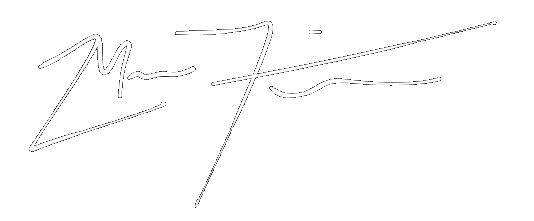When you watch someone you've known and loved your whole life transition into the mysteriousness of death, everything you thought you had figured out comes into question. Concepts you've thought and read about are made real. The shortness of life shows itself in no uncertain terms, and there's no denying the finite time with which we have to live.
It's something we all struggle to comprehend. How do we make sense of life and death, how much longer will it be until we learn how to live?
My grandpa was always there for me with words of wisdom and encouragement. I have a folder full of his emails that have shaped and influenced the person I've become, and I wanted to share with you one piece of advice that sums up much of what he taught me to believe:
““Mark, let me give you a little advice, NOT only about your career in hockey, but in life. First, you must have a VISION - your vision can be to become the best high school principal there has ever been, to become the very best doctor or surgeon, to become the best goalie that has ever played in the NHL. You must set your vision in your mind, and in everything you do, keep that vision or dream alive. BUT, along with your vision, what ever it may be, you also need DISCIPLINE in order to reach your dreams, and you are at an age right now that the world is the limit. You can do anything you dream you can do, but you need to have DISCIPLINE. Discipline to reach your vision - be it physical commitment to your hockey, or education or what ever. Get the vision in your mind, discipline yourself to reach your vision, and then go for it. YOU CAN DO ANYTHING AND REACH ANY GOAL as long as you discipline yourself to do what it takes to reach your goal. So, if your goal is to play goal in the NHL, now is the time, every game you play, put it in your mind that you will play the very best you can play, and discipline yourself, if it means eating right, working out, doing things that are not exciting for you, whatever it takes, you can reach your goal.”
Just some words of encouragement.
Love you and want the best for you in life.
- Grampa Bill”
What great advice for a young man trying to figure out how to lead a good life. It gives me the courage to believe in my capacity to achieve what I set out to accomplish. It also forces me to ask myself on a daily basis, what is this vision that I am disciplining myself to realize? What am I becoming? Where is this action taking me, how does it fit in with the whole of my life?
What are the standards with which I am measuring myself? Freedom lies in self-regulation, discipline, holding yourself accountable to standards that are worthy of what you're aiming to achieve. I agree that having a vision of what you are aiming for is important. You need a commitment to seeing the long game. But a distinction I want to make is the importance not attaching yourself to outcomes, not making your worth dependent on the achievement of a future goal. If you spend your life chasing a dream, living in a state where your happiness depends on some future accomplishment, even the result will eventually disappoint. It's the distinction between being process vs outcome driven.
You need to make the work itself the reward. Life is in a state of constant flux. Your achievements eventually become memories, yours for a brief moment and then gone. I did not reach my goal of playing in the NHL (more on this to come). I lived my whole life with this vision. I disciplined myself for years to achieve it. So does this mean I failed? If I am outcome driven, if I'm judging success or failure based on outcome, yes I failed. Does this mean I spend the rest of my life feeling like a failure? Viewed this way, every moment leading up to realizing the goal has also been a failure.
We need to think very carefully about how we personally define success. I think what a lot of people miss is that when you set ambitious goals, it's impossible to fail completely. In striving to realize my ambitious vision (viewed as process-driven), I succeeded spectacularly. My efforts took me all over North America and even over to Europe. I met so many amazing people, and created some of the best memories I'll ever have. Pursuing this dream gave me an overarching purpose, something to keep me on track during the countless hours of practice and less exciting aspects required to become a professional athlete.
So should I not have gone after my dreams because of the high chance of failure? Or do I step back and look at where that pursuit led me? It's not an easy thing to think about. As I gain some distance and accept the failure to reach one of my life's biggest goals, I consider new ways in which I can apply my grandpa's advice. What's next after I've gone through this cycle of aspiration, success, and failure? It's time to begin again, although this time equipped with all of those hard-earned lessons.
Set and follow ambitious visions. Discipline yourself in constant pursuit of them, and enjoy every moment of the process.
